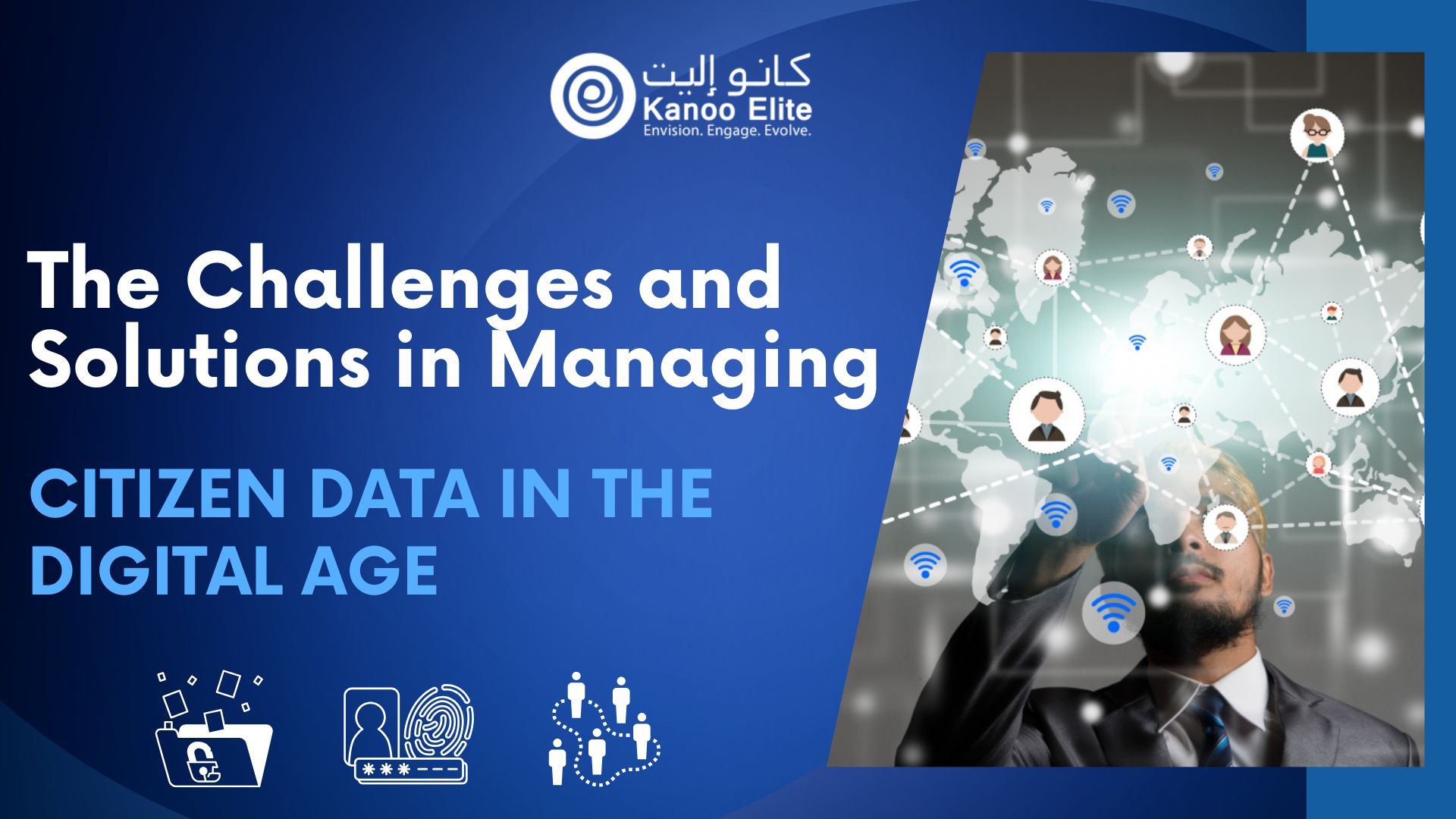In the digital age, citizen data has become a crucial asset for governments, businesses, and organizations worldwide. This data, encompassing personal information, financial records, health details, and even behavioural insights, enables authorities to improve public services, ensure security, and drive economic growth. However, managing citizen data comes with a unique set of challenges, including security risks, ethical concerns, regulatory compliance, and technological limitations. In this blog, we will explore these challenges and present effective solutions to ensure responsible and secure data management.
Challenges in Managing Citizen Data
1. Data Privacy and Security Risks
One of the biggest challenges in managing citizen data is ensuring privacy and security. With the rise of cyber threats, including hacking, ransomware attacks, and identity theft, sensitive personal data is constantly at risk. Government databases and private organizations holding large volumes of citizen information are prime targets for cybercriminals.
Key Issues:
- Unauthorized access and data breaches.
- Weak cybersecurity infrastructure.
- Insider threats and human errors leading to data leaks.
2. Regulatory Compliance and Legal Complexities
Governments worldwide have implemented strict data protection laws, such as the General Data Protection Regulation (GDPR) in the EU, the California Consumer Privacy Act (CCPA) in the US, and India’s Digital Personal Data Protection Act. Organizations handling citizen data must comply with these regulations, which can be complex and vary by jurisdiction.
Key Issues:
- Understanding and adhering to multiple data protection laws.
- Penalties for non-compliance, including hefty fines.
- Ensuring cross-border data transfer compliance.
3. Ethical Concerns and Citizen Trust
The misuse of citizen data by corporations, government surveillance programs, and data brokers raises significant ethical concerns. Many citizens worry about how their data is being collected, stored, and shared without their consent.
Key Issues:
- Lack of transparency in data collection and usage.
- Ethical concerns over mass surveillance and AI-driven profiling.
- Diminishing trust in governments and corporations.
4. Data Silos and Interoperability Challenges
Different government agencies and private entities often collect and store citizen data in isolated systems, leading to inefficiencies and duplication. These data silos make it difficult to share relevant information across departments while maintaining security and privacy.
Key Issues:
- Lack of integration among databases.
- Redundant data collection leading to inefficiency.
- Difficulties in real-time data access and analysis.
5. Technological Constraints and Infrastructure Gaps
Not all countries and organizations have the necessary technological infrastructure to manage large-scale citizen data efficiently. In many developing nations, outdated systems, lack of skilled IT personnel, and limited budgetary resources hinder effective data management.
Key Issues:
- Outdated IT infrastructure.
- Inadequate investment in cybersecurity.
- Shortage of skilled data management professionals.
Solutions to Overcome Data Management Challenges
1. Strengthening Data Security Measures
To combat cyber threats and protect citizen data, governments and organizations must invest in robust cybersecurity frameworks.
Key Solutions:
- Implementing strong encryption techniques for data storage and transmission.
- Deploying multi-factor authentication (MFA) and biometric security.
- Regular security audits and penetration testing to identify vulnerabilities.
- Educating employees and citizens about cybersecurity best practices.
2. Adopting Clear and Effective Data Governance Policies
To ensure regulatory compliance and maintain transparency, organizations must establish clear data governance frameworks.
Key Solutions:
- Appointing Data Protection Officers (DPOs) to oversee compliance.
- Creating transparent data collection and processing policies.
- Providing citizens with control over their personal data through opt-in/opt-out mechanisms.
- Regularly updating privacy policies in line with evolving regulations.
3. Enhancing Citizen Trust Through Ethical Data Practices
Governments and businesses must prioritize ethical data management to build citizen trust and avoid misuse.
Key Solutions:
- Adopting privacy-by-design principles in digital platforms.
- Using anonymization and pseudonymization techniques to protect identities.
- Enforcing strict data-sharing policies with third parties.
- Increasing public awareness of how their data is used and protected.
4. Improving Data Interoperability and Integration
To break down data silos, organizations must implement modern data-sharing frameworks that allow for secure and efficient collaboration.
Key Solutions:
- Implementing standardized Application Programming Interfaces (APIs) for data exchange.
- Utilizing blockchain technology for secure, decentralized data sharing.
- Creating centralized, cloud-based databases with strict access controls.
5. Investing in Advanced Technologies and Infrastructure
Governments and private organizations must invest in modern technology and skilled personnel to manage citizen data effectively.
Key Solutions:
- Upgrading legacy systems to cloud-based and AI-driven platforms.
- Allocating funds for cybersecurity research and development.
- Conducting regular training programs for IT and data management staff.
- Collaborating with private tech firms to improve data infrastructure.
Conclusion
Managing citizen data in the digital age presents significant challenges, from privacy concerns to regulatory compliance and technological limitations. However, with the right combination of robust security measures, ethical data practices, regulatory adherence, and advanced technology, these challenges can be effectively addressed. Governments and organizations must prioritize transparency, invest in modern infrastructure, and empower citizens with control over their data to build a secure and trustworthy digital future. By taking proactive steps today, we can ensure that citizen data is protected and used responsibly for the benefit of society.



